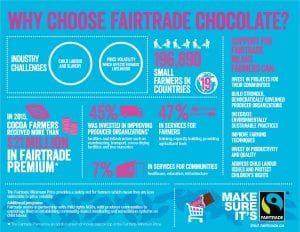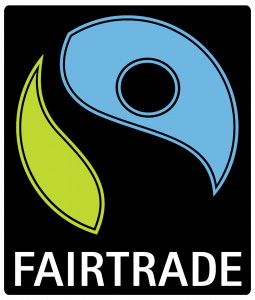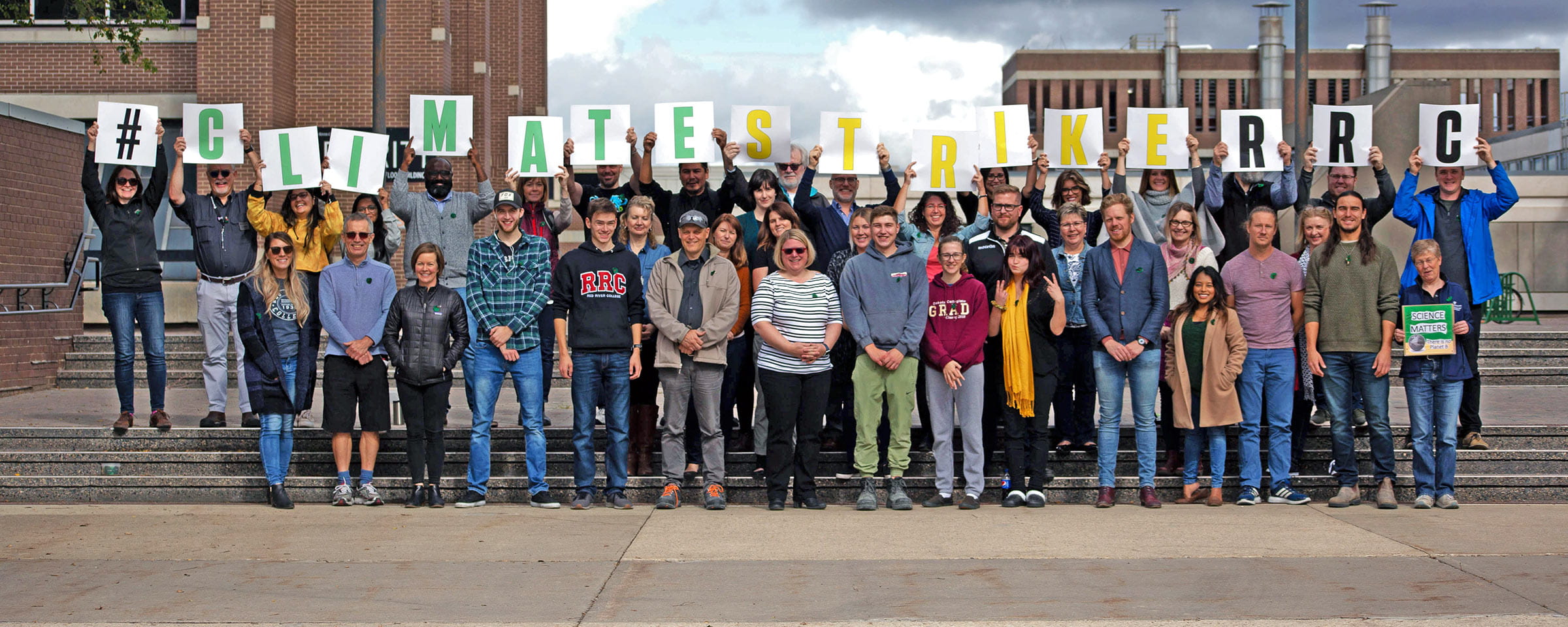Fair Trade Campus Week 2018
Fair Trade Campus Week is right around the corner! Fair trade is about re-connecting you to the products that you buy, every single day. From September 24-29, come celebrate the fair trade movement and Fairtrade certified products on Campus!
Stop by our Fair Trade Campus Day event Thursday, September 27th from 11:00 – 1:30 pm in the Library Hallway (NDC). Sample and discover your favorite blend of our new Fairtrade Certified Spirit Bear Coffee and vote to win a free bag of your favorite! What’s coffee without a treat? Chef Barbara O’Hara and her students will be baking up some chocolatey fair trade goodies, you will not want to miss. In addition, Ten thousand Villages will be selling fair trade merchandise alongside our table full of fair trade giveaways and your chance to enter to win a GREAT prize pack.
Not on campus Thursday? You have another way to enter to win… just show us! It’s this easy:
- Follow us on Facebook, Twitter, or Instagram
- Take a photo demonstrating your Fair Trade commitment
- Tag us or send your photo to us on any social media channel (Facebook, Twitter, Instagram) using the hashtag #RRCFTCampus
Hint: Fairtrade products can be found in vending machines, food service locations, the Campus Store, and The Ox. Think chocolate, coffee, and tea!
In case you wanted to learn a bit more about what fair trade is, we added some information below:
What is fair trade?
Simply put, fair trade is a partnership among those that trade goods. It promotes social, financial, and environmental sustainability based on transparency, respect, and equity among international trade. By following these mantras, it also fights against poverty, climate change, and economic crisis.
Why is this so important?
 In developing and under developed countries, workers basic rights are not always protected. This means that working conditions, wages, and equality of workers is unregulated leaving workers of all ages vulnerable.
In developing and under developed countries, workers basic rights are not always protected. This means that working conditions, wages, and equality of workers is unregulated leaving workers of all ages vulnerable.
For example, in 2017 Canada imported over half a billion dollars (USD) worth of food from Guatemala. Over 70% of the imported goods were food or food products. The average wage in Guatemala? $10 a day.
What is the solution?
Fairtrade Canada was established in 1997 with the goal to empower disadvantaged producers by addressing and improving the working and living conditions of families in other countries. In doing so, the FAIRTRADE mark for ethically sources products was adopted. This third-party certification is a set of standards that must be met by farmers who in turn receive assurance that the relevant economic, social, and environmental standards are met and that producers receive the Fairtrade Minimum Price and Premium. The goal is to empower workers to face challenges such as unfair wages, poor working conditions, train farmers to be more resilient to climate change, encourage knowledge sharing with other farmers to create a stronger community, and promote equality among farmers.
Now groups, such as The Association of Small Producers of Saman and Anexos (APPBOSA) that have been Fairtrade certified since 2003, are able to generate extra money needed for projects that reduce manual labor. In 2008, APPBOSA based in Peru, were able to invest in a cable-way, to carry bananas from the trees to packing stations. This investment has taken away strain, improved efficiency and cut costs for the people of APPBOSA.
What can you do?
The power is in your hands! As a consumer, supporting fair trade is a way for you to ensure that the people who created the product you are purchasing were paid a fair wage, had safe working conditions and that the product was created in a sustainable manner. When purchasing goods on or outside of campus, be sure to look for the FAIRTRADE mark – there are almost 7000 products with it! This includes fruits and vegetables, chocolate, coffee, tea, and more. Click here to find the full list!
Good luck and see you next week!
